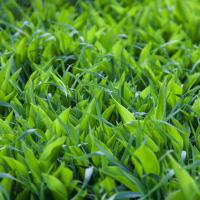Are Tomato Plants Poisonous to Cats?
Many cat owners enjoy having plants in their homes, but certain plants can be dangerous to feline companions. One plant that may pose a risk to cats is the tomato plant. While tomatoes themselves are safe for cats to eat in small quantities, the rest of the plant contains potentially harmful chemicals. In this article, we will explore the dangers of tomato plants for cats and what you can do to keep your feline friends safe.
What Makes Tomato Plants Poisonous?
The main danger of tomato plants for cats lies in a substance called solanine. Solanine is a naturally occurring chemical found in the leaves, stems, and unripe fruit of the tomato plant. In small quantities, solanine is relatively harmless to humans and most animals. However, cats are particularly sensitive to this chemical and can suffer from negative effects even from small amounts of solanine.
When a cat ingests solanine, it can lead to symptoms such as vomiting, diarrhea, lethargy, and loss of appetite. In severe cases, large amounts of solanine can cause tremors, seizures, and even death. The severity of the symptoms will depend on the amount of solanine the cat has consumed.
How Can You Tell If a Cat Has Been Poisoned?
If you suspect that your cat has ingested part of a tomato plant, it is important to look for the signs of solanine poisoning. Symptoms typically appear within a few hours of ingestion and can last for several days. These symptoms include:
Vomiting
Diarrhea
Lethargy
Loss of appetite
Tremors or shaking
Seizures
Difficulty breathing
Increased heart rate
If you notice any of these symptoms in your cat, it is important to seek veterinary attention immediately. The veterinarian will be able to provide treatment to help your cat recover from solanine poisoning.
How Can You Keep Your Cat Safe?
The best way to keep your cat safe from tomato plants is to simply not have them in your home. If you do choose to grow tomatoes, make sure they are kept out of reach of your cat. You can also use a plant stand to elevate the plant and keep it away from curious feline paws.
If you do suspect that your cat has ingested part of a tomato plant, contact your veterinarian immediately. They can provide advice on how to proceed and may recommend treatment to alleviate any symptoms your cat may be experiencing.
Conclusion
While tomatoes themselves are safe for cats to eat, the rest of the plant can be dangerous due to the presence of solanine. As a cat owner, it is important to be aware of the risks and take precautions to keep your feline friends safe. If you do suspect that your cat has ingested part of a tomato plant, seek veterinary attention immediately to ensure that your cat receives prompt and appropriate care.

 how many times do yo...
how many times do yo... how many planted tre...
how many planted tre... how many pine trees ...
how many pine trees ... how many pecan trees...
how many pecan trees... how many plants comp...
how many plants comp... how many plants can ...
how many plants can ... how many plants and ...
how many plants and ... how many pepper plan...
how many pepper plan...































